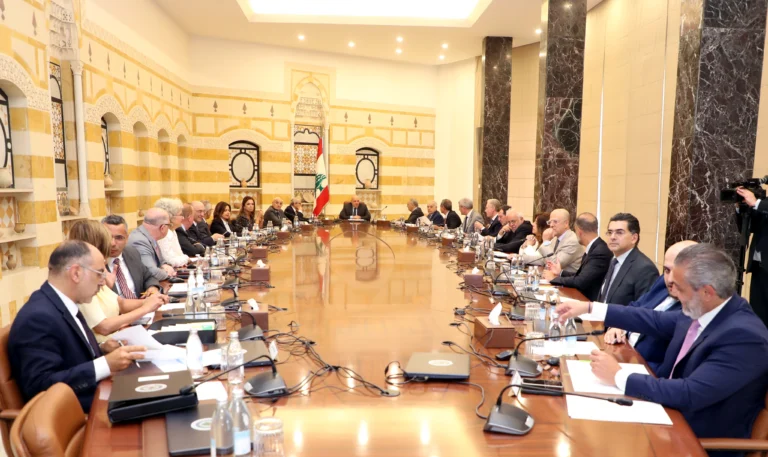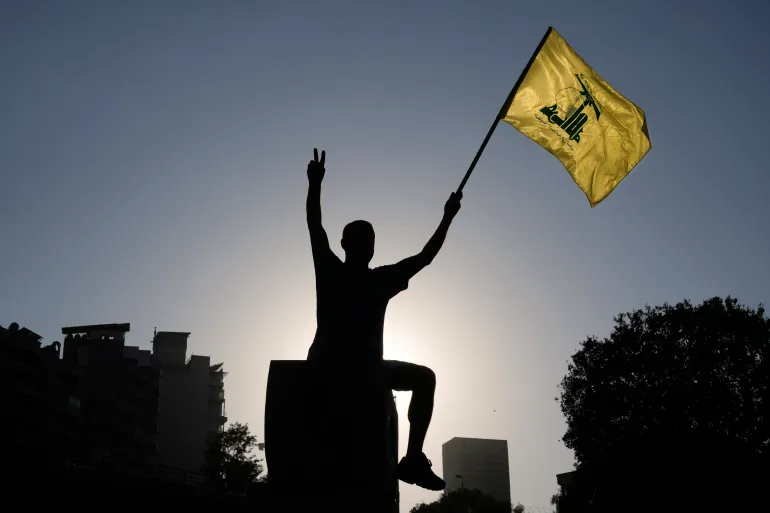Lebanese Cabinet Approves U.S.-Backed Plan to Disarm Hezbollah Amid Rising Tensions

August 7, 2025 Hour: 6:45 pm
In a landmark decision, the Lebanese Cabinet has formally approved the framework of a U.S.-backed proposal to disarm Hezbollah, marking a pivotal moment in efforts to consolidate the fragile ceasefire with Israel established in November 2024. The announcement was made by Information Minister Paul Morcos, who confirmed that the government endorsed the 11-point Barrack document, named after U.S. envoy Tom Barrack, outlining a phased disarmament and national reconstruction strategy.
RELATED:
UN: Over 300 Civilians Killed by Rwanda-Backed Rebels in Eastern Congo
The plan, described by Barrack as a “historic, bold, and correct decision,” aims to implement the “One Nation, One Army” model, restricting weapons to official Lebanese security institutions. The Cabinet’s approval comes despite walkouts by Hezbollah and Amal ministers, who accused the government of capitulating to foreign pressure and warned of political consequences.
Under the proposal, Lebanon must commit to full disarmament of non-state actors, including Hezbollah, by December 31, 2025. In exchange, Israel is expected to halt military operations, withdraw from five strategic positions in southern Lebanon, and release Lebanese prisoners through indirect negotiations coordinated by the International Committee of the Red Cross (ICRC).
The plan unfolds in four phases:
- Phase 1: Lebanon issues a decree committing to disarmament; Israel suspends military activity.
- Phase 2: Lebanese Army begins deployment; Israel initiates troop withdrawal and prisoner release.
- Phase 3: Final Israeli withdrawal; international funds secured for rubble removal and infrastructure rehabilitation.
- Phase 4: Hezbollah’s heavy weapons, including drones and long-range missiles, are dismantled; a global economic conference is convened to support Lebanon’s recovery.
The Barrack document also reaffirms Lebanon’s adherence to the Taif Agreement, its Constitution, and UN Security Council Resolution 1701, emphasizing that decisions on war and peace must rest solely with the state. It calls for the demarcation of borders with Israel and Syria, the return of displaced civilians, and the restoration of full state sovereignty.
Despite the Cabinet’s endorsement, Hezbollah has rejected the plan outright. Deputy Secretary-General Naim Qassem warned that any attempt to disarm the group without national consensus would be treated as illegitimate. “We are ready to discuss a defense strategy, but not under the pressure of aggression,” he said earlier this week.
The November 2024 ceasefire, brokered by the U.S. and France, followed a year of escalating hostilities and a two-month war that killed over 4,000 people. While the truce mandated Israeli withdrawal and Hezbollah’s repositioning north of the Litani River, violations have continued. Israel has admitted to over 500 airstrikes since the ceasefire, claiming to target Hezbollah infrastructure.
International reactions have been mixed. France hailed Lebanon’s move as “brave and historic,” while Hezbollah’s allies warned of destabilization. Analysts caution that the absence of Shiite ministers from Cabinet sessions could undermine the legitimacy of the decision under Lebanon’s sectarian power-sharing system.
The Lebanese Army has until August 31 to submit a detailed disarmament and deployment plan. Meanwhile, the U.S., Saudi Arabia, France, and Qatar are preparing to host a reconstruction summit, contingent on the plan’s implementation.
Author: OSG
Source: Aljazeera-DW






